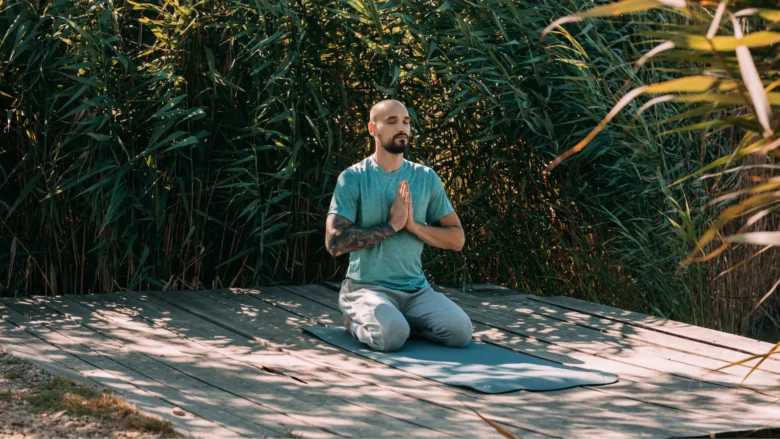Mental health is a vital part of our overall well-being. With the hustle and bustle of modern life, it can be easy to overlook the importance of taking care of our mental health. Self-care plays a crucial role in managing mental health and improving overall happiness and productivity. In this article, we’ll explore the relationship between mental health and self-care, and offer practical tips on how you can take steps to prioritize your mental health.
Understanding Mental Health
Mental health refers to the emotional, psychological, and social well-being of an individual. It affects how we think, feel, and act, and influences our ability to cope with stress, relate to others, and make decisions. Mental health is just as important as physical health, yet many people often overlook it or fail to recognize its significance.
When mental health is compromised, it can lead to a variety of issues such as anxiety, depression, and stress. These conditions can affect our daily lives, relationships, and work productivity. It’s essential to take proactive steps to protect and maintain good mental health, and this is where self-care comes into play.
What is Self-Care?
Self-care involves the activities and practices we engage in to take care of our physical, emotional, and mental well-being. It’s about making time for yourself, nurturing your body and mind, and taking steps to reduce stress and prevent burnout. While self-care looks different for everyone, it is an essential component in maintaining a healthy mental state.
Self-care can be as simple as ensuring you get enough sleep, practicing mindfulness, or engaging in hobbies that bring you joy. It is not selfish or indulgent but rather an essential practice that enables you to recharge and be more resilient in facing life’s challenges.
The Importance of Self-Care for Mental Health
Self-care is crucial for maintaining mental health. When we take time to care for ourselves, we reduce the negative effects of stress, improve our emotional regulation, and boost our overall mood. Regular self-care practices are linked to lower rates of anxiety and depression, helping individuals feel more grounded and balanced.
Self-care can help reduce stress, improve mood, prevent burnout, and enhance resilience. Regular self-care practices like meditation, physical exercise, and relaxation techniques can significantly reduce stress levels and improve emotional health. Additionally, caring for your mental health through self-care helps you manage challenges more effectively and stay emotionally balanced.
Effective Self-Care Practices for Better Mental Health
Self-care encompasses a wide range of activities that help nurture the mind and body. Below are some of the most effective self-care practices you can incorporate into your routine to promote better mental health.
- Physical Activity
Exercise is one of the most effective ways to boost your mood and reduce stress. Physical activity releases endorphins, the brain’s natural mood enhancers, which help to combat stress and anxiety. Whether it’s going for a jog, doing yoga, or taking a walk, staying active is crucial for mental well-being.
- Mindfulness and Meditation
Mindfulness involves focusing on the present moment without judgment, and it can help you manage negative emotions and thoughts. Meditation is a mindfulness practice that helps calm the mind, reduce anxiety, and enhance emotional regulation. Practicing mindfulness or meditation for just 10-15 minutes a day can have significant benefits. - Social Connections
Maintaining strong social relationships is vital for mental health. Talking to friends or family members, participating in group activities, or even joining a support group can provide emotional comfort and reduce feelings of loneliness and isolation. - Adequate Sleep
Good sleep is essential for mental clarity and emotional well-being. Lack of sleep can worsen anxiety and stress, so it’s crucial to prioritize rest. Creating a consistent bedtime routine and ensuring your environment is conducive to sleep can significantly improve your mental health.
- Creative Hobbies and Interests
Engaging in creative activities such as drawing, writing, cooking, or gardening can serve as a therapeutic outlet for your emotions. These activities can reduce stress, improve focus, and provide a sense of accomplishment.
Creating a Self-Care Routine
A well-planned self-care routine is one of the best ways to consistently nurture your mental health. It’s important to remember that self-care is a long-term commitment, not a one-time activity. Setting aside time each day or week for self-care will allow you to build a balanced and healthy routine.
Start by assessing your needs and identifying areas of your life that need attention. Select self-care practices that resonate with you, such as exercise or hobbies, and set realistic goals. Begin with small steps, and track your progress to see how different practices affect your mental health.
Self-Care Myths vs. Reality
There are several myths about self-care that can prevent people from practicing it effectively. Here are some common misconceptions:
- Myth: Self-care is selfish.
Reality: Self-care is necessary to be your best self for others. By taking care of yourself, you are better equipped to take care of others. - Myth: Self-care is only about relaxation.
Reality: Self-care includes mental, emotional, and physical well-being. It’s about nurturing every aspect of yourself. - Myth: You have to do self-care activities every day.
Reality: Even small, consistent self-care practices are beneficial. You don’t have to spend hours each day to see results. - Myth: Self-care costs a lot of money.
Reality: Many self-care practices, like meditation or walking, are free and easily accessible.
Frequently Asked Questions (FAQs)
Q1: What are the most effective self-care practices for reducing stress?
A1: Physical activity, mindfulness and meditation, social connection, and sleep are some of the most effective self-care practices for managing stress.
Q2: How can I start a self-care routine if I’m too busy?
A2: Start small by dedicating just 5-10 minutes a day to an activity that relaxes you, such as deep breathing or journaling. Gradually increase the time as you feel more comfortable.
Q3: Is self-care the same as self-indulgence?
A3: No, self-care focuses on nurturing your overall well-being, while self-indulgence can involve temporary pleasures that may not contribute to long-term mental health.
Q4: Can self-care help with anxiety?
A4: Yes, self-care practices like exercise, mindfulness, and sleep improvement can significantly reduce anxiety levels by helping the body relax and manage stress.
Q5: How can I prioritize self-care when I have a busy schedule?
A5: Try to integrate small, manageable self-care activities into your daily routine, such as walking during lunch breaks or practicing deep breathing before bed.
Conclusion
Mental health is a fundamental aspect of our overall well-being, and self-care is a powerful tool in maintaining a healthy mind. By practicing physical activity, mindfulness, social connection, and ensuring good sleep, we can significantly improve our mental health and resilience against stress. Remember, self-care isn’t selfish—it’s essential for a balanced, happy life. Prioritize your mental health today, and take small but meaningful steps towards a better tomorrow.
References:
- National Institute of Mental Health (NIMH). (2021). Mental health information. NIMH.gov.
- Mayo Clinic. (2020). Stress management: How to reduce and manage stress. MayoClinic.org.
- American Psychological Association (APA). (2020). The importance of self-care for mental health. APA.org.




